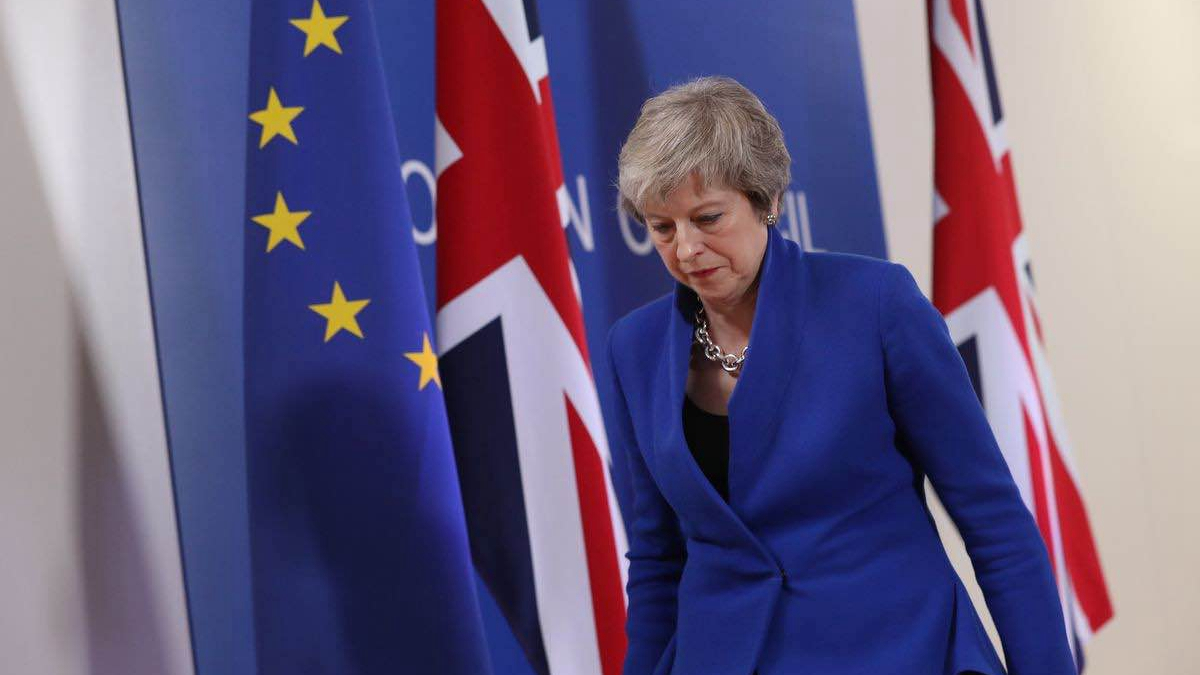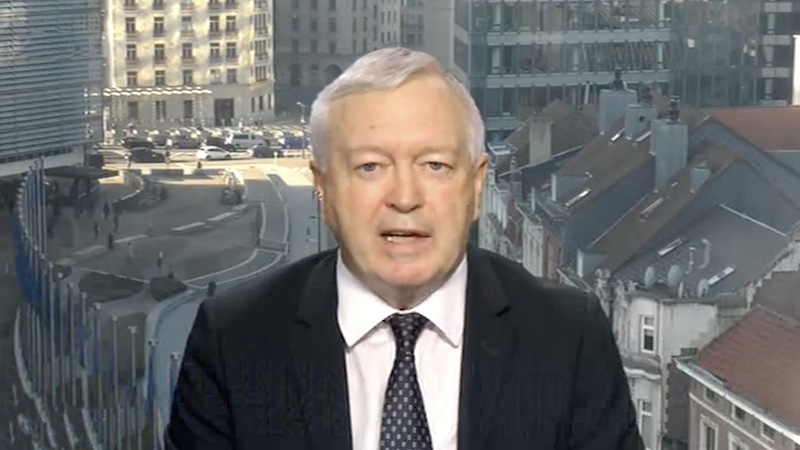
TV Show
22:48, 31-Mar-2019
Brexit delayed again, everything remains in maze
Dialogue with Yang Rui
02:01

British Prime Minister Theresa May's Brexit deal was rejected for a third time, by a margin of 58 votes, on March 29, the expected Brexit deadline.
Though May's offer to resign once the withdrawal agreement was approved did win support of many pro-Brexit MPs, the Northern Ireland's DUP was not convinced.
Thousands of "Leave" supporters gathered outside the House of Commons on Friday, the day the UK should have left the European bloc, to protest against Brexit extension.
According to media reports, May is now seeking to bring her EU withdrawal bill back to the parliament for a fourth vote.
Cui Hongjian, the director of the Department for European Studies at China Institute of International Studies, predicted that a no-deal Brexit scenario is increasingly likely to happen.
"To some degree, I think European Union is trying to prepare something, especially for a no-deal Brexit," said Cui on CGTN's Dialogue program.
He also pointed out that May perhaps will offer a new package for the draft deal. And once it goes into negotiations with the EU again, there will be a silver lining for Brexit on April 12.
In terms of the potential new leader, Cui said he doesn't believe anyone who takes this position would be lucky enough to resolve the deadlock.
"Whoever the person is, no matter Johnson or anyone else, once they take this position, they will have to face the same situation."
He also mentioned that the UK will suffer much more from a hard Brexit scenario than the EU.
Fraser Cameron, the director of the EU-Asia Center in Brussels, agreed with Cui on this point by saying that nobody wants a no-deal Brexit, but other EU members are gradually losing their patience.
02:41

"She was originally a "Remainer", so she wanted to try to preserve as many advantages as possible. But quite simply, you cannot have the cake and eat it too, you have actually got to make choices," said Cameron.
He stressed this is why Britain failed to understand the solidarity that other 27 EU member states extend to Ireland.
"Ireland was staying in the EU, Ireland was a member, Britain was leaving, Britain was no longer going to be a member. That's completely changed the balance in terms of the negotiating power between Brussels and London."
While discussing the possibility of a second referendum, Cameron said that people now are better informed than the first time and in a democracy, people should be allowed to change their opinions.
(If you want to contribute and have specific expertise, please contact us at opinions@cgtn.com.)

SITEMAP
Copyright © 2018 CGTN. Beijing ICP prepared NO.16065310-3
Copyright © 2018 CGTN. Beijing ICP prepared NO.16065310-3